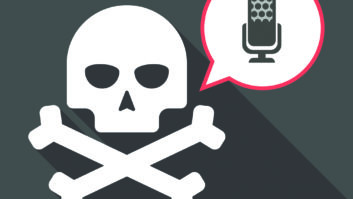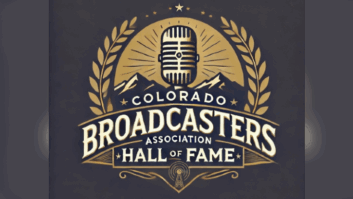Pirate radio broadcasters are illegal; they’re not cute, not filling a niche nor acting as a training test bed for legal broadcasters.
That’s according to FCC Commissioner Michael O’Rielly, who says in his latest blog post that pirate radio “causes unacceptable economic harm to legitimate and licensed American broadcasters by stealing listeners. Pirate operators also cause ‘harmful interference’ that inhibits the ability of real broadcasters to transmit their signals and programming, which provide such vital services as emergency alerts, critical weather updates, political information and news.”
Approaches like the NAB’s Broadcast Leadership Training Program should be encouraged, says O’Rielly, to prepare underrepresented populations for leadership and ownership positions in broadcasting. “Alternatively, those truly interested in operating a legal broadcast station can seek to participate in the commission’s July 2015 auction, in which 131 FM construction permits will be available, many in smaller and less expensive markets.”
The Republican commissioner acknowledges that the agency’s enforcement resources are stretched and poses that “we need to consider other ways to remove the scourge that is pirate radio.”
There’s a legal approach that’s been used to combat email spam, and it may work for broadcasters too, according to the commissioner. Essentially, the legal framework could enable broadcasters to go after illegal stations, according to O’Rielly, who suggests replicating a concept that’s part of the so-called “CAN-SPAM Act of 2003.”
The law essentially authorizes Internet service providers to seek out the bad actors for a host of illegal activity and recoup their losses. The framework serves as a good model to provide more options, outside of the FCC process, for deterring and eliminating pirate radio, according to the commissioner.
Such a rule change may need congressional approval, and to be clear, he’s not suggesting that consumers be allowed to file lawsuits against pirate stations.
Direction-finding techniques help enforcement agents track down pirates, but, they often move to a different location and begin illegal broadcasts again on a different frequency. Broadcasters can detect the illegal broadcasts and pirates may be more concerned about a legal station seeking to protect its revenues than “the busy FCC,” suggests O’Rielly.
The pirate proliferation issue has been mentioned in context with the agency plan to reduce their Enforcement Bureau field offices and personnel, we’ve reported.
But O’Rielly says he’s not taking a position on that issue and that his proposal is not related. “Few details have been made available to me regarding the field offices, and I was not a party to the plan’s development.”
The problem with pirate radio and lack of attention exists today under the current enforcement structure, he notes. “But if we can narrowly permit a limited and targeted private right of action here to be used only by broadcasters, it could provide a valuable tool to tackle a persistent problem in some radio markets.”
In response to Radio World’s query about the proposal, NAB EVP Communications Dennis Wharton said, “NAB appreciates the fact that FCC Commissioner O’Rielly is putting a spotlight on the serious interference and public safety issues related to an unchecked increase in pirate radio stations. As Commissioner O’Rielly notes, pirate radio is illegal, and should not be tolerated. NAB will work with the commission to encourage creative new approaches to beefed-up enforcement and better policing of the radio airwaves.”







